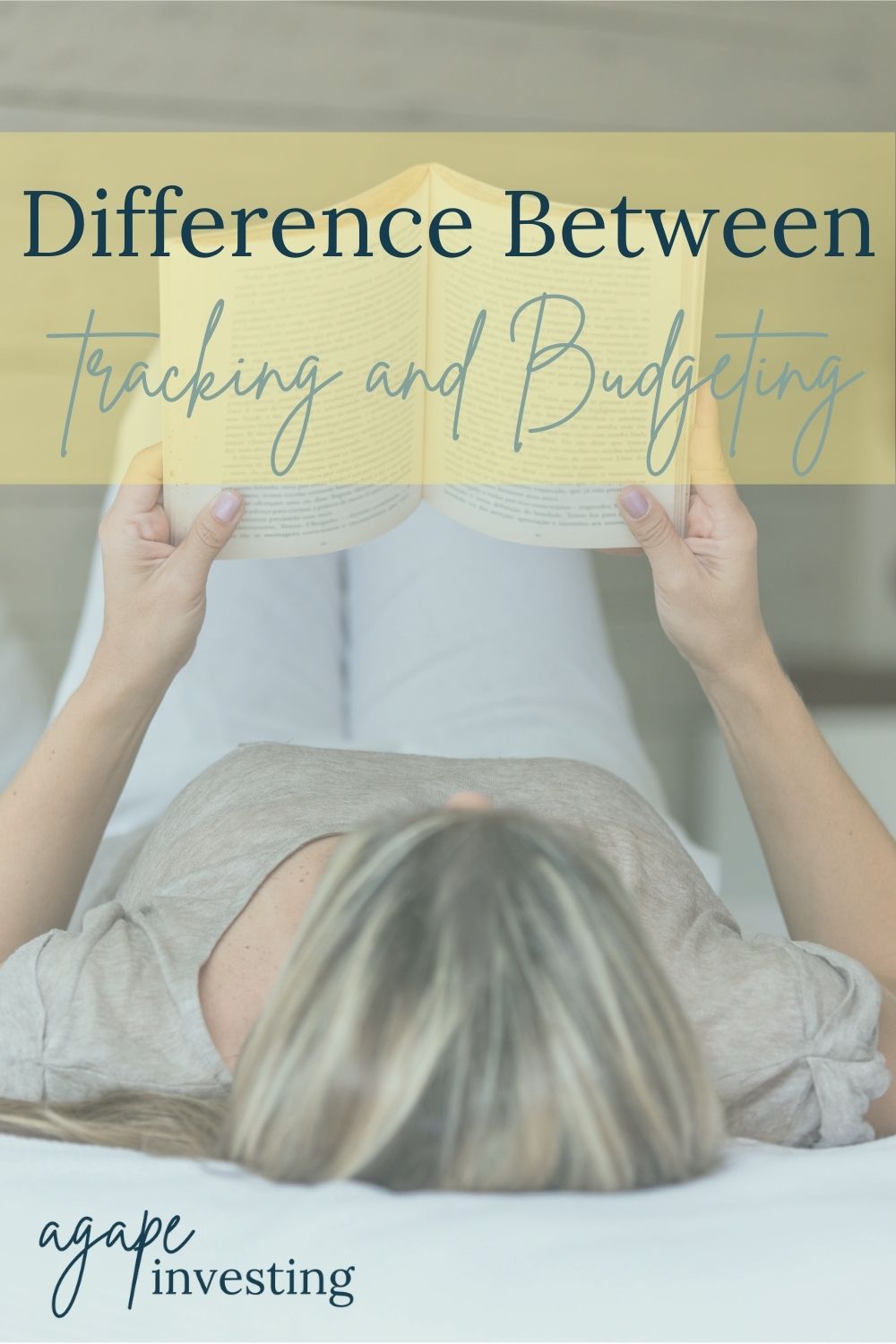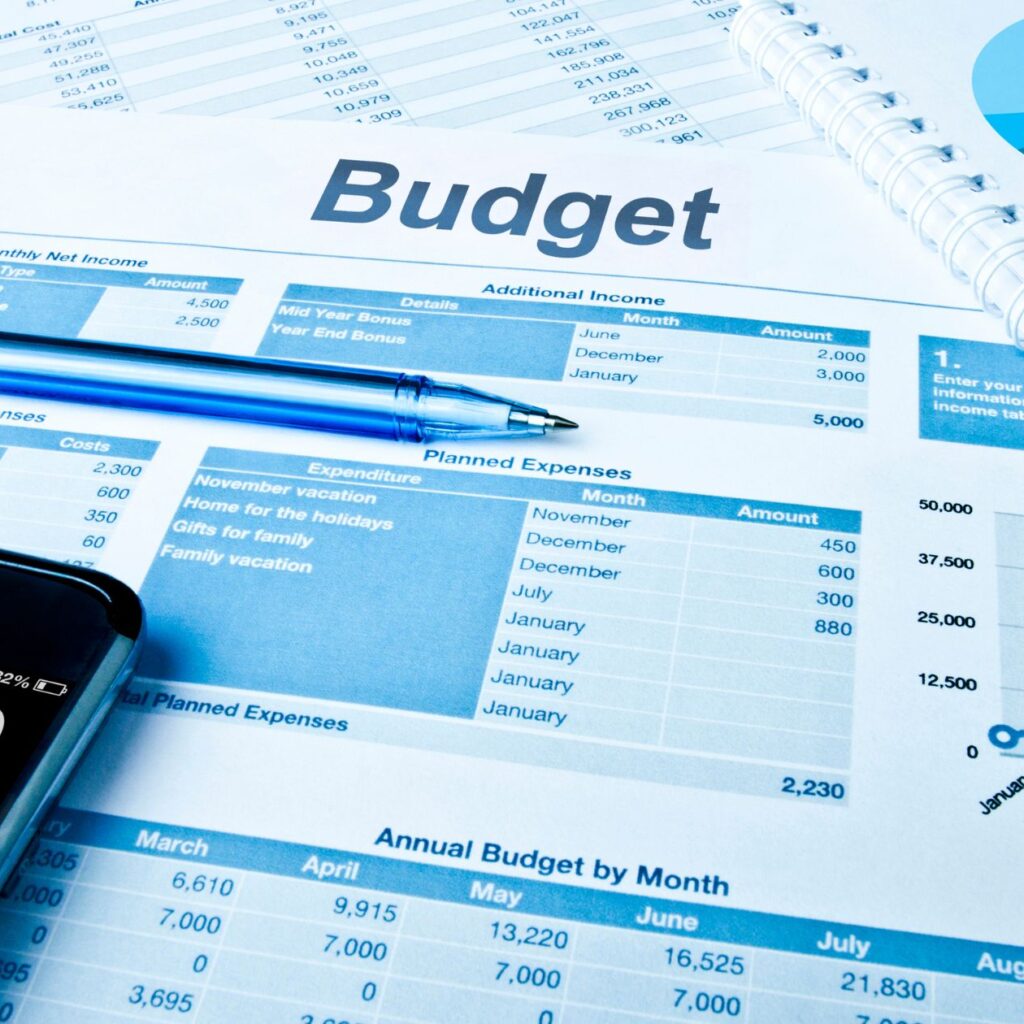What is the Difference Between Money Tracking and Budgeting
As you learn more about financial health, taking control of your money, and achieving financial independence, you probably come across these two terms quite often, money tracking and budgeting.
But really, what is the difference between money tracking and budgeting?
Are money tracking and budgeting the same?
How do money tracking and budgeting relate to one another?
In this article, we will discuss the difference between money tracking and budgeting and why they are both important as well as why you can’t have one without the other.
So what is the difference between money tracking and budgeting?

What Is Money Tracking?
Money tracking is the process of looking back at your finances and seeing where your money went. Money tracking happens after your money has been spent.
Money tracking is beneficial to find out what your spending habits are.
What is Budgeting?
Budgeting is the process of telling your money where to go. It is like creating an itinerary for your money and making sure you are staying on top of your finances before your money has been spent.
What is the Difference Between Money Tracking and Budgeting?
Now you can see that the difference between money tracking and budgeting is when it happens.
Money tracking is after your money has been spent and budgeting happens before your money has been spent.
How Do Money Tracking and Budgeting Relate?
When you decide to start a budget, one of the first steps is to track your money to see what your previous spending habits have been like. To take control of your finances, it is important to find out what you have been doing with your money in the past in order to make changes.
These two things belong together. Let’s look at how you cannot have one without the other…
You Cannot Have Budgeting Without Tracking
Not only do you track your money before you begin a budget, but you will continue tracking your money as you budget. Your budget is the guide or map for your finances, tracking your money will tell you if you have stayed on the path you have created for yourself.
Tracking happens before you start a budget, but it also happens while you budget!
Related: Top 3 Biggest Budgeting Challenges and How to Overcome Them
You Cannot Have Tracking Without Budgeting
Tracking comes before and during the budgeting process so it is obvious that you cannot budget without tracking your money, however, you cannot simply stop with only tracking your money.
If you are serious about stopping the cycle of living paycheck to paycheck, if you want to achieve your financial goals, if you dream about achieving financial independence, you cannot stop with only tracking your money. You MUST create a budget in order to accomplish more with your money.
Again, tracking your money is simply seeing where it went after it has been spent. If you want to TAKE CONTROL of your financial health and live a life more on your own terms, a budget must come next.
Where to Track Your Money
Tracking your money can be super simple! You can either choose to track your money using pen & paper, in Excel, or find an app to help you out.
I recommend tracking it yourself if you want to get fully immersed in your financial education. Try using pen & paper or excel before you speed off to an app.
Don’t like to do mental math? Make a money tracker on Excel or Google Sheets and let the spreadsheets to the computing for you.
How to Track Your Money
Once you have figured out exactly where to track your money, start inputting in all of your previous expenses.
While you input them, start categorizing them into different expense categories.
Examples of Expense Categories –
Groceries
Household Supplies
Eating Out
Doctor’s Visits
Clothing
Fuel
Maintenance
What Do You Do After You Have Tracked Your Money?
Once you have tracked your money and gotten an idea of where it is all going, observe your spending trends.
Ask yourself these questions:
- Are there any months that are dramatically different than the rest in that category?
- Why did I spend more/less during this month?
- Was there a specific event that I had going on that month that cost me more in that category?
- Was I surprised by any of the spending amounts for a specific category?
- Which of my spending habits align with my values and which ones do not align with them?
- Can my spending be adjusted or cut back in a certain category?
How to Create a Budget
You have already taken the first step in creating a budget; tracking your spending. After you have observed your current spending trends, make adjustments to your spending habits.
Now you need to set your own limits to each expense category that you came up with before.
Learn more about creating a budget in just 5 easy steps here.
Need somewhere to keep your budget?
Check out my Complete Super Simple Budget Spreadsheets here for all your tracking and budgeting needs.
Taking Control of Your Financial Future
What do you envision your future looking like? Do you want to stop living paycheck to paycheck? Do you wish you could go on more family vacations while your kids are young? Maybe you would like to buy a new house? Or maybe you would like to be able to give more!
What do you want your financial future to look like?
It is all possible when you start money tracking and then create a budget.
Stop making excuses for taking control of your finances today!
You May Also Like
The Top 3 Biggest Budgeting Challenges and How to Overcome Them
25 Simple Ways to Save Money Today
Are You Falling for These 3 Budgeting Myths?
How to Pick a Debt Payoff Strategy




